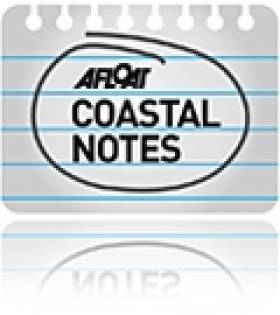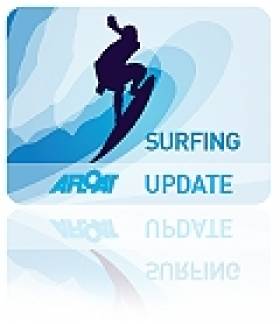Displaying items by tag: Benone Strand
Benone Strand Lifeguard Unit Vandalised Twice In A Week
#Benone - The RNLI beach lifeguard unit on Benone Strand on the North coast has been vandalised for a second time in a week.
During what is traditionally one of the RNLI lifeguard’s busiest weeks of the year, the charity’s lifeguards discovered on Wednesday morning (1 July) that vandals had damaged the exterior of the beach lifeguard unit for a second time within a week.
The railings around the exterior of the hut had been badly bent, a ventilation fan on the roof of the unit had been broken off, and fencing leading up to the unit that protects the surrounding dune system had also been broken.
The RNLI are working closely with the PSNI in an attempt to prevent further damage being done to the beach unit throughout the summer.
"It is estimated that repairs to the beach lifeguard unit will run into hundreds of pounds for the charity, as the railings, fencing and ventilation fan will have to replaced and fitted," said RNLI lifeguard supervisor Tim Doran.
"While our lifeguards are on duty many people come up to the units for assistance and advice and they are easily identifiable. We hope that these acts of vandalism will cease and that our lifeguards can continue to operate from them safely when carrying out their lifesaving work."
#RNLI - RNLI lifeguards on the Causeway Coast helped to bring a sand dune fire under control at the weekend.
Lifeguards Jenny Thompson, Liam Mullan, James Walton and Jordan Burns were patrolling Benone Strand near Coleraine on Saturday afternoon (16 May) when, shortly after 3pm, they spotted smoke emerging from the sand dunes as they were preparing to enter the water to do some training.
One lifeguard went to investigate the incident some 400m from the rear of the lifeguard hut and observed a large fire which was spreading fast due to a strong easterly wind.
The lifeguards contacted the Northern Ireland Fire and Rescue Service before going to the scene themselves and bringing the fire under control within 10 minutes using fire extinguishers and shovels.
While continuing to maintain an operational and safe beach, the lifeguards ensured that no one was in any danger.
The lifeguards were assisted by staff from the nearby Benone tourist complex who provided the extinguishers, the beach rangers and some members of the Order of Malta who had been providing medical cover for a half marathon which had just finished on the beach.
RNLI senior lifeguard Liam Mullan explained: "The strong easterly wind was a big factor on how fast the fire was growing and how hot it was burning. Thankfully once on scene, we were able to bring the fire under control in about 10 minutes.
"Everyone reacted quickly and worked together using the water to contain the fire to stop it traveling with the wind. We then worked from behind the blaze using the wind to keep the smoke away from us. Using shovels, we brought the flames under control."
Speaking following the incident, Tim Doran, RNLI lifeguard supervisor, said: "While the primary role of a lifeguard is ensuring people’s safety in the water, they also have a duty of care for all members of the public when on land too.
"RNLI lifeguards have a good knowledge of beach access and the surrounding areas and we would encourage any concerned member of the public who comes across such fires to raise the alarm with the lifeguards on patrol who can respond and alert their colleagues in the fire service."
#Surfing - The third annual Long Line Disabled Surf Festival will take place at Limavady's Benone Strand on Saturday 14 June, according to the Londonderry Sentinel.
Afloat.ie previously reported on the inaugural event hosted by the Long Line Surf School in the North Co Derry town, which brought together more than 30 people with disabilities aged from eight to 25, many of whom were trying out surfing for the first time.
Long Line's Dan Lavery says confidence is the key to enjoying surfing, whatever one's differing abilities or experience level - so everyone taking part will have at least one volunteer lifeguard or surf instructor on hand to help them catch the waves.
The Londonderry Sentinel has more on the story HERE.






























































